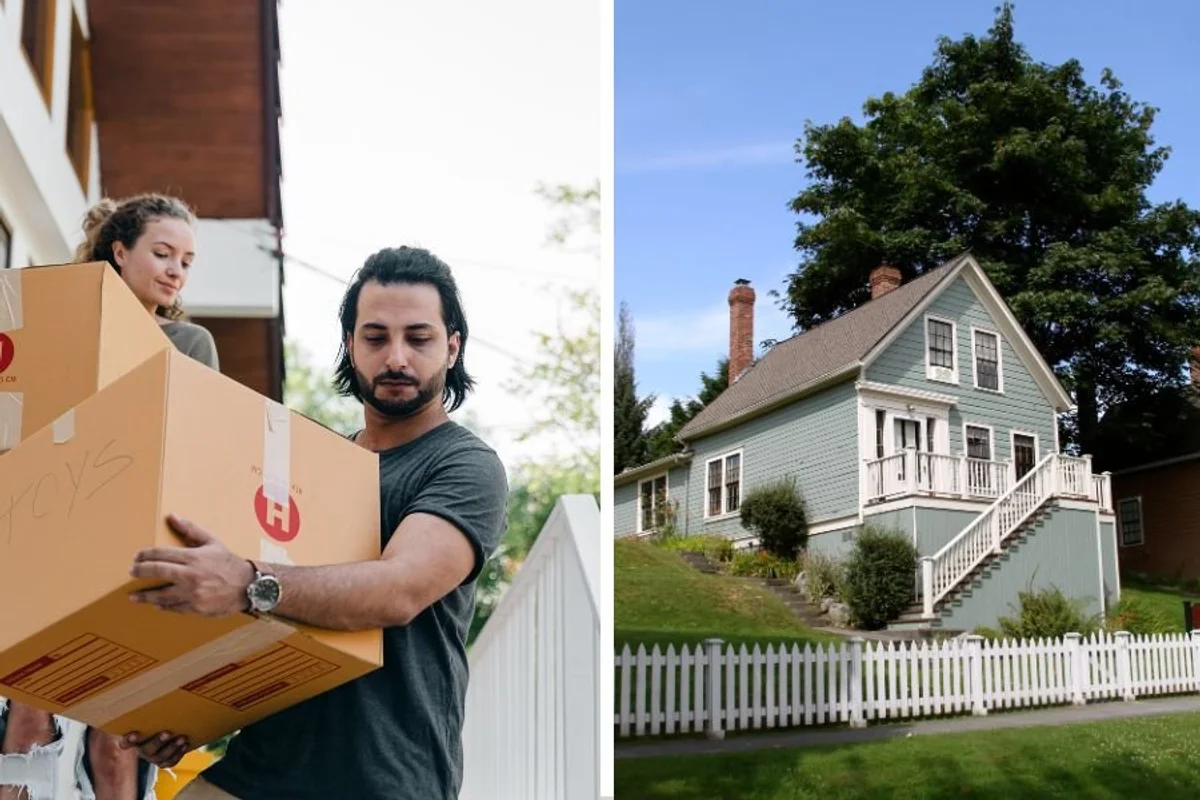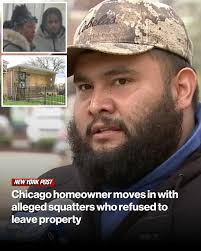Squatters Refusing to Leave: The Chicago Case That Took a Wild Turn

- Info and Tips
Imagine buying your place—finally—and showing up to start fixing it up, only to find strangers already living there.
That’s exactly what happened to Marco Velazquez in Chicago. But instead of walking away or waiting around, he did something most people wouldn’t even consider.
This story isn’t just about squatters—it’s about what happens when the law isn’t on your side, and you’ve got to think fast.

Photo credit: Canva
The Shocking Discovery
Marco Velazquez thought he was stopping by one of his vacant properties in Chicago to check in before putting it up for sale. Instead, he walked into a situation no homeowner ever wants to deal with—people were already living in his house.
These weren’t renters or contractors. They were strangers who had moved in without permission and were treating the place like their own.
Naturally, Marco called the police, assuming they’d remove the intruders right away. After all, he had proof he owned the home. But what he didn’t expect was to be told that the police couldn’t do anything.
The people inside claimed they had paperwork for the property—though the mortgage company they listed didn’t even exist. Still, under Illinois law, the officers couldn’t legally remove them on the spot.
The squatters were now protected by certain rights, and Marco was left in disbelief. What started as a routine visit turned into a legal and personal nightmare.
The Legal Blockade: Squatter Rights in Illinois
When Marco tried to have the squatters removed, he quickly ran into a wall—Illinois law. In this state, squatters can gain certain legal protections, even if they move into a property without permission.
That means if someone is living in a home and claims they have a right to be there, the police often can’t just kick them out, even if the actual owner has the paperwork to prove ownership.
In Marco’s case, the squatters showed police what looked like mortgage documents, but the company listed didn’t even exist. Still, that small piece of paper was enough to slow everything down.
The situation wasn’t black and white anymore—it became a civil matter, not a criminal one. That meant Marco would have to take the case to court if he wanted them removed, which could take months.
Illinois, like several other states, has laws that aim to protect people from wrongful eviction. But in situations like this, it can leave homeowners stuck. While these laws were created with good intentions, they often make it harder for property owners to reclaim what’s rightfully theirs. Marco found that out the hard way.
A Radical Solution: Moving In Together
With the police unable to help and no quick legal fix in sight, Marco Velazquez came up with an idea most people wouldn’t even consider—he moved into the house with the squatters.
If he couldn’t get them out, he figured he’d make it uncomfortable enough that they’d leave on their own. So, he brought his wife, a few friends, air mattresses, and blankets, and settled in for what became an awkward, tense standoff.
Marco hoped that by sharing the space, the squatters would feel pressured to leave. He even invited friends to stay overnight to make the environment crowded and less appealing. It wasn’t an easy choice, but for him, it felt like the only way to take some control back.
His goal wasn’t to start a fight—it was to send a clear message: he wasn’t giving up his home without a fight, even if that meant becoming roommates with people who had no legal right to be there.
This bold move may have seemed extreme, but it highlighted the frustrating position many property owners face. When the system can’t offer fast solutions, sometimes you’re forced to think outside the box.
The Unexpected Turn: Demands and Negotiation
Marco’s plan to make the squatters uncomfortable by moving in didn’t go quite the way he hoped. Instead of backing down, the squatters doubled down.
The very next morning after he moved in, they hit him with a demand—$8,000 in cash if he wanted them to leave. It was a shocking twist. Not only were they staying in his home without permission, but now they were trying to profit from it.
Marco was stuck. He knew continuing to live with them wasn’t safe, especially with tensions rising. And after hearing stories of squatters dragging these situations out for months—or even over a year—he decided it was time to cut a deal.
He managed to negotiate the demand down to $4,300. It wasn’t ideal, but it was better than the long, expensive legal battle he might’ve faced.
After the squatters finally moved out, Marco learned that the woman had a history of doing this—she had previously been arrested for squatting in another home.
Now, he’s hoping to bring charges against both squatters for what they did to him. But in the end, it was the payout—not the law—that got them to leave.

Image Source: NY Post
The Fallout and Lessons Learned
Once the squatters were out and Marco had his house back, the frustration didn’t fade. What stayed with him was the shock that someone could move into his property, refuse to leave, and still have more legal protection than he did as the rightful owner.
He had to pay people who never had a right to be there, just to make them go. It was a painful, expensive lesson—and one that many homeowners don’t realize they might face until it’s too late.
Marco also discovered that one of the squatters had a track record of doing this before, which made the situation feel even more unfair. Now, he’s trying to press charges, hoping to stop them from doing the same thing to someone else. But more than anything, he wants others to learn from what happened to him.
This experience exposed real flaws in the system—laws meant to protect people from being wrongly evicted can sometimes make it nearly impossible for property owners to protect what’s theirs. Marco’s story is a clear warning: owning a home doesn’t always mean you’re fully in control of it.
Conclusion
Marco Velazquez’s story is more than just a strange headline—it’s a wake-up call. He did what most of us would never imagine: he moved in with squatters to take back his home.
In the end, it cost him time, money, and peace of mind. But it also revealed how flawed the system can be when the law doesn’t move fast enough to protect homeowners.
If there’s one takeaway, it’s this—know your rights, stay alert, and never assume something like this can’t happen to you.
FAQs
Do squatters have rights in Chicago?
Yes, but things are changing. As of a new law signed by Governor JB Pritzker, it’s now easier for police to remove squatters from a home in Illinois—especially when it’s clear they have no legal right to be there. This helps homeowners avoid long eviction battles in some cases.
What’s the best way to protect a property from squatters in Chicago?
One of the smartest things you can do is install a security system. Cameras and alarms can scare off squatters before they get in, and you’ll get alerts right away if someone tries. It might cost some money upfront, but it’s much cheaper than dealing with squatters later.
How do you deal with squatters in Illinois?
Start by giving them a written notice to leave. Make it clear you own the property and want them out by a specific date. If they refuse to go, your next step is to contact the sheriff’s office. They can help you move forward with the legal eviction process.
How does the eviction process work in Chicago?
Only the county sheriff has the power to carry out an eviction, and they need a court order to do it. The person being evicted can try to delay or fight it at different stages. Even after they’re removed, they might ask the court to seal the case from public view.